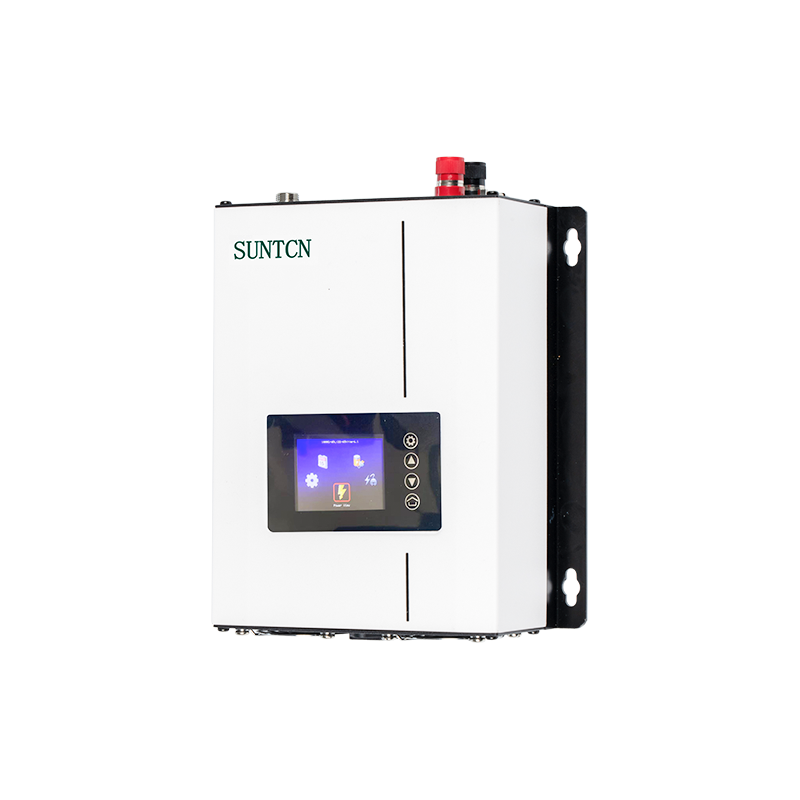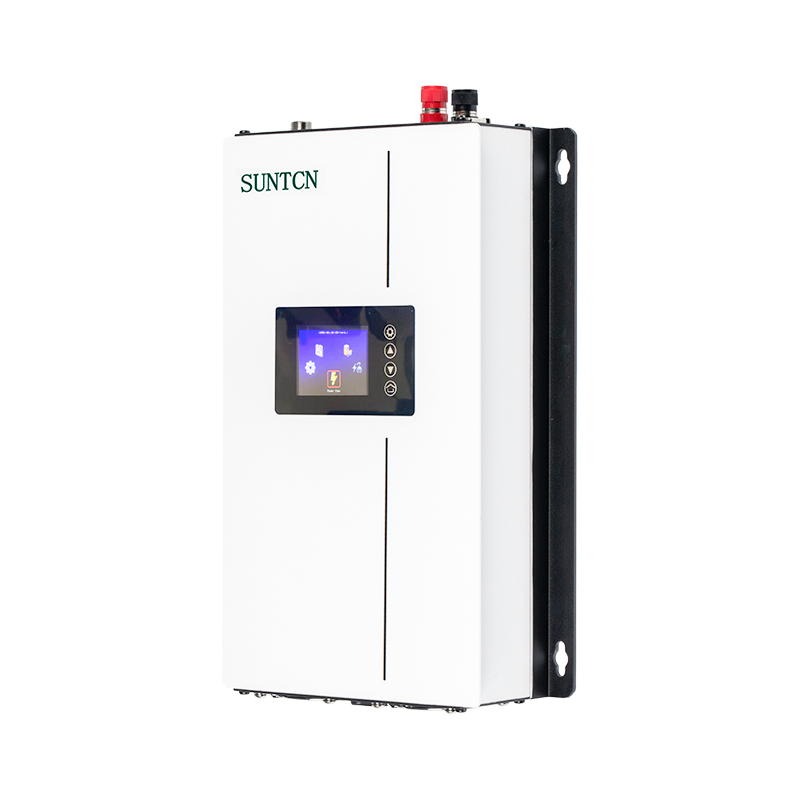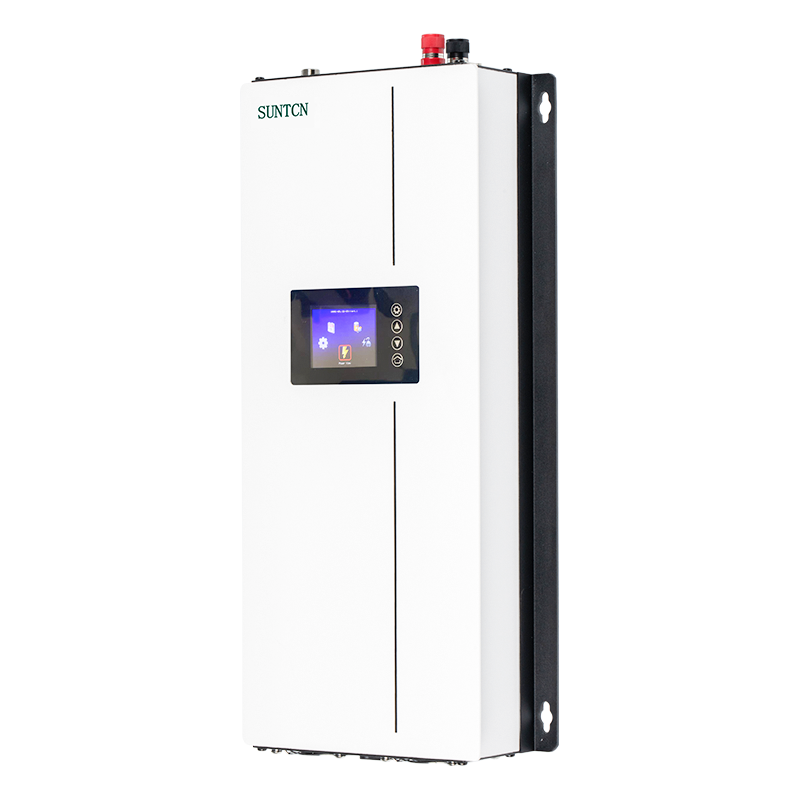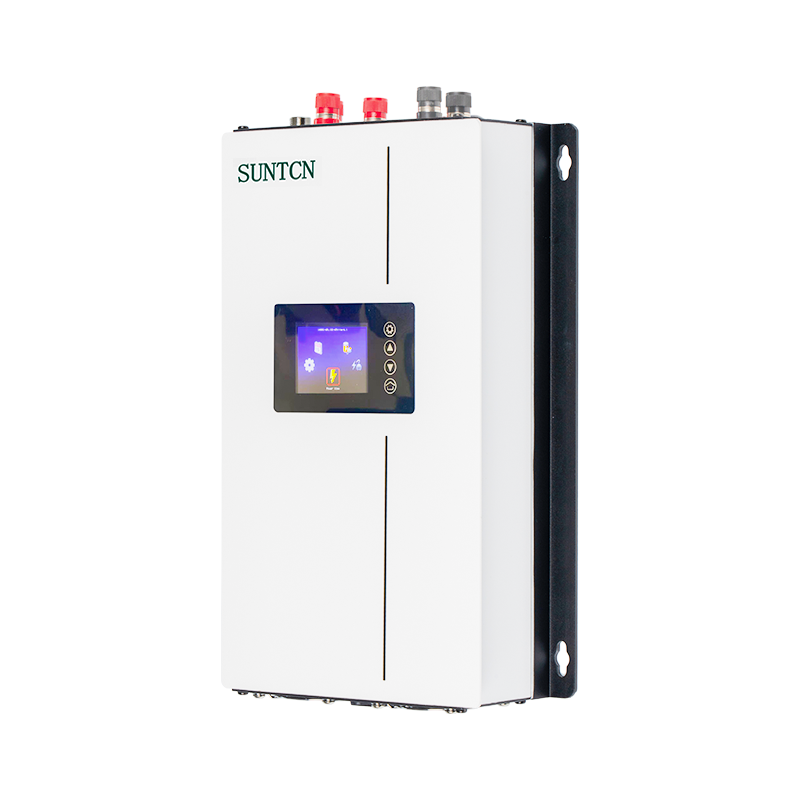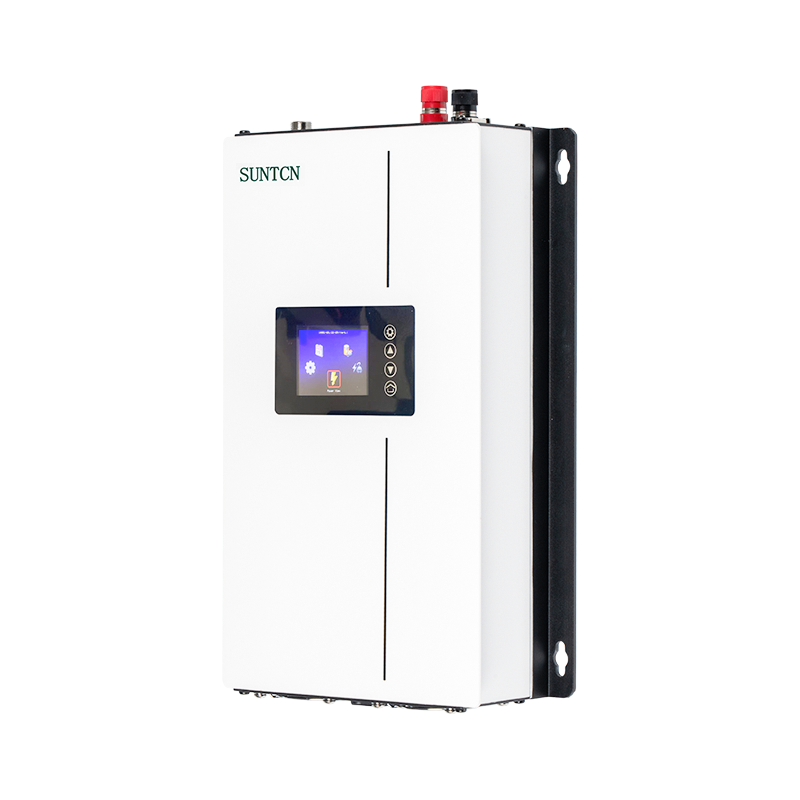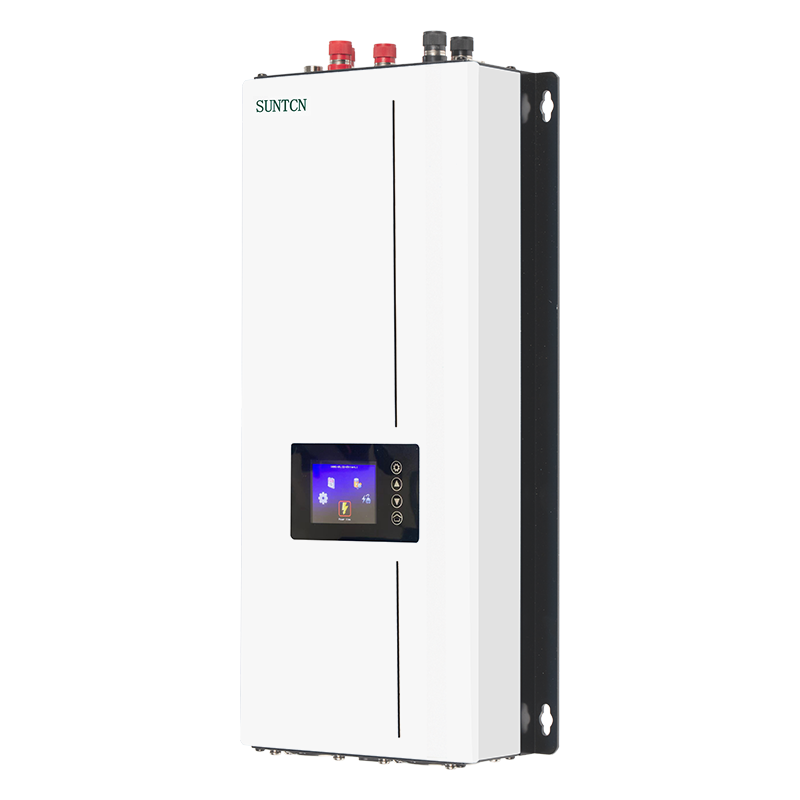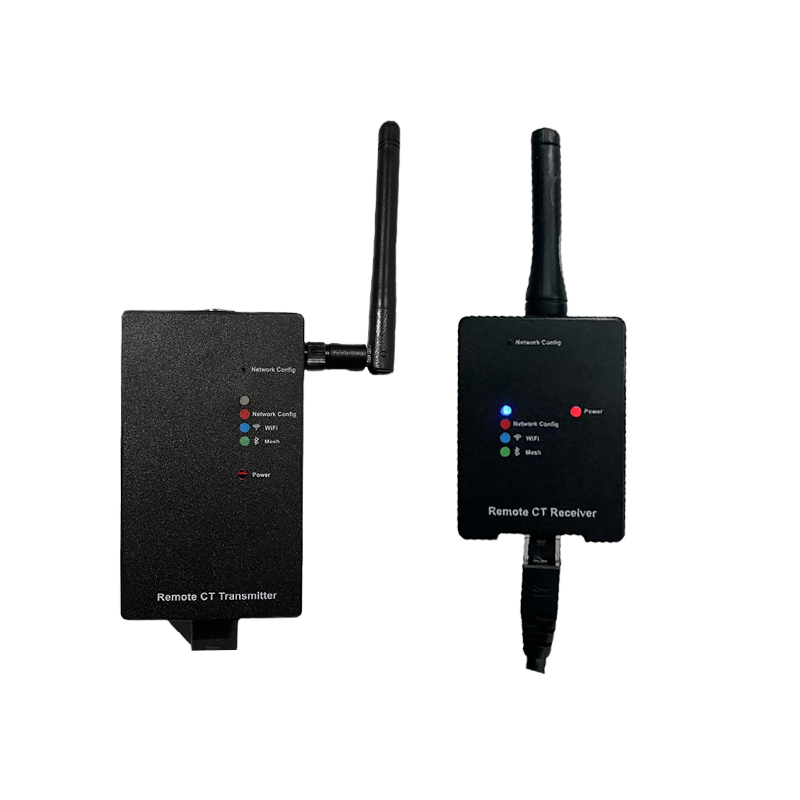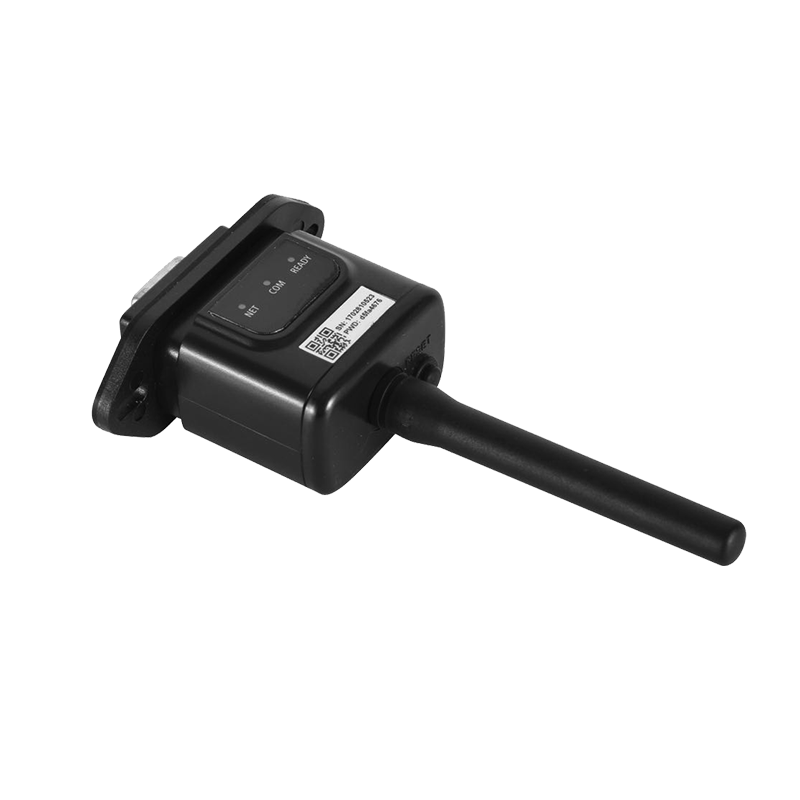With the continuous growth of global energy demand and the continuous enhancement of environmental awareness, the development and utilization of new energy has become an important direction for the current social development. In this context, the hybrid inverter (Hybrid Inverter), as an integrated and multifunctional power conversion device, has gradually become a core component in solar energy and other renewable energy systems. It can not only efficiently convert DC power into AC power, but also flexibly manage multiple energy inputs to achieve intelligent power management in the home, industry and commercial fields. This article will explore the working principle, application scenarios, technical advantages and future development trends of the hybrid inverter.
The basic function of the hybrid inverter is to convert direct current (DC) from solar panels or other DC power sources into alternating current (AC) that can be used by the power grid or home. However, unlike traditional inverters, hybrid inverters also have the functions of energy storage and intelligent management. It can be connected to a battery energy storage system to store excess power for use during peak power consumption or power outages in the power grid.
This is the core part of the inverter, responsible for converting DC power into AC power. The module can also adjust the output voltage and frequency according to the needs of the power grid to ensure the stability of power supply.

The energy management system built into the hybrid inverter can intelligently allocate and schedule energy use. It can automatically switch power modes according to energy prices, grid conditions and user needs to achieve optimal energy utilization.
The battery management system is responsible for monitoring and regulating the battery's charging and discharging process to ensure efficient operation and long life of the battery. At the same time, it can also prevent problems such as battery overcharging, overdischarging or short circuiting, and improve the safety of the system.
Hybrid inverters are usually equipped with multiple input interfaces to support multiple energy inputs such as solar energy, wind energy, grid and batteries. This enables it to flexibly respond to different energy combinations and meet diverse energy needs.
Hybrid inverters are widely used in various scenarios due to their multifunctional and intelligent characteristics. The following are some typical application areas:
In home energy systems, hybrid inverters can integrate solar power generation and energy storage equipment to help users achieve self-sufficient energy supply. During the day, the inverter converts solar energy into the electricity needed by the home, and stores the excess electricity, and then draws electricity from the battery at night or in rainy weather. Through intelligent energy management, users can effectively reduce their dependence on the grid and reduce energy costs.
In remote areas or areas with unstable power grids, hybrid inverters are ideal for off-grid power systems. They can combine solar, wind and energy storage systems to provide users with a continuous and stable power supply to ensure basic living and production needs.
In industrial and commercial sites, hybrid inverters can help companies optimize energy use and reduce electricity bills. For example, factories can store electricity when electricity prices are low and use the stored electricity during peak hours to avoid high electricity bills. In addition, hybrid inverters can improve the reliability of power supply and prevent power outages from causing losses to production.
With the popularity of electric vehicles, the demand for charging stations is increasing. Hybrid inverters can integrate solar power generation, energy storage equipment and grid power to provide green and efficient charging services for electric vehicles. At the same time, it can balance the grid load and avoid grid pressure caused by charging peaks.
Hybrid inverters have significant technical advantages, making them an important part of new energy systems:
Hybrid inverters use advanced power electronics technology to achieve efficient DC-AC conversion, reduce energy losses, and improve the efficiency of the overall system.
Through the built-in energy management system, hybrid inverters can dynamically adjust power distribution according to actual needs to achieve optimal energy utilization. This not only reduces energy costs, but also improves the user's electricity experience.
Hybrid inverters support multiple energy inputs and can flexibly respond to different energy configuration requirements. At the same time, users can add energy storage systems or other renewable energy power generation equipment according to actual needs, and easily expand and upgrade the system.
Hybrid inverters are equipped with a complete battery management system and protection mechanism, which can effectively prevent battery and power system failures and improve the safety and stability of the system.
With the continuous advancement of technology and the growth of market demand, hybrid inverters will show more development trends in the future:
Future hybrid inverters will be more intelligent, and remote monitoring and management can be achieved through integration with IoT devices. Users can monitor energy usage in real time through mobile phones or computers and optimize electricity usage strategies.
With the further development of power electronics technology, the energy conversion efficiency of hybrid inverters will continue to improve. This will make the overall benefits of new energy systems more significant and bring more economic and environmental benefits to users.
Modular design will become the future trend of hybrid inverters. This design makes equipment installation, maintenance and upgrading more convenient, and users can flexibly adjust system configuration according to needs to adapt to different application scenarios.
With the expansion of market demand and the maturity of production technology, the price of hybrid inverters will gradually decline. In the future, more households, businesses and public facilities will be able to afford this advanced equipment, promoting the widespread application of new energy.
As a key component in new energy systems, hybrid inverters are leading the transformation of the energy industry with their efficient energy conversion capabilities, intelligent energy management functions and a wide range of application scenarios. With the continuous advancement of technology and the continuous expansion of the market, hybrid inverters will provide more users with intelligent and environmentally friendly power solutions in the future, help global energy transformation, and achieve the goal of sustainable development.

 English
English Español
Español Deutsch
Deutsch